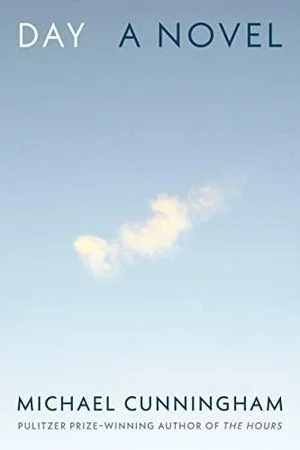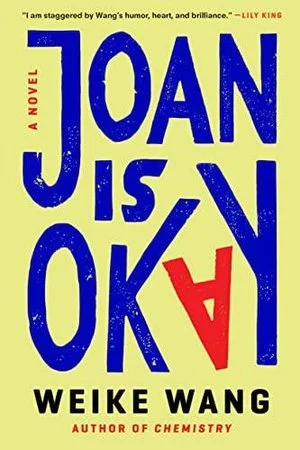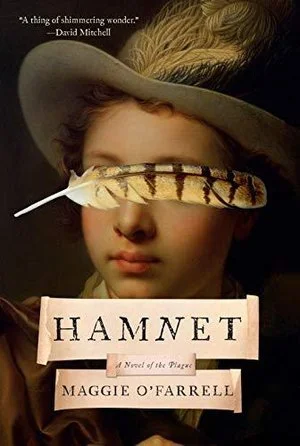First, a review of the most recent pandemic story I’ve read. But then, scroll down . . .
Day Michael Cunningham (2023) This poignant novel takes us into the life of a family in New York City on three specific days: April 5, 2019; April 5, 2020; and April 5, 2021. Of course, the pandemic is a major feature of the narrative, but readers are reminded that, in every family, many other factors were at play in those years. Isabel and Dan are struggling with their careers and their marriage. Their young children, Nathan and Violet, can’t help but notice. Dan’s brother, Garth, is trying to figure out his relationship with his friend Chess, who is the mother of their son. But the emotional support for the family resides in Robbie, Isabel’s brother. Robbie has been living with Dan and Isabel, but in 2019 the apartment has become too cramped, and he has to move on. He’s also been dumped by his latest boyfriend, finding consolation in an Instagram alter-ego named Wolfe. With deft, subtle strokes, novelist Cunningham delineates these characters, both the adults and the children, creating a rich portrait.
More Pandemic Stories
A world-changing event such as a pandemic is certainly a plot generator. If you are still trying to get your head around what happened, here are reprises of some of my previous posts.
The Pandemic of the 2020s
Lucy by the Sea Elizabeth Strout (2022) Pulitzer-Prize winner Strout looks at the effects of the COVID-19 pandemic through the eyes of Lucy Barton (a character she’s developed in My Name is Lucy Barton, Anything is Possible, and Oh William). Lucy’s ex-husband, William, is a scientist who sees how dangerous the coronavirus is. In early March 2020, he insists that Lucy leave New York City for a rental house on the coast of Maine. In first-person narrative, Lucy details the interactions she has with family and friends during 2020 and early 2021. Lucy by the Sea truly captures the sense of desperation and loneliness that the pandemic wrought.
Happy-Go-Lucky David Sedaris (2022) For fans of David Sedaris (count me in), every new collection of his essays means a couple of evenings of sure-fire good reading, unveiling the vagaries of family relationships. Happy-Go-Lucky focuses quite a bit on the last years of David’s nonagenarian father, Lou, and on the impact of the COVID pandemic. The stories are honest, touching, sometimes heartbreaking, sometimes disturbing. There is simply no other essayist who is as irreverent and candid and downright funny as David Sedaris.
Wish You Were Here Jodi Picoult (2021) Picoult sets this novel in New York City and Galápagos in 2020, right when the coronavirus pandemic breaks out. The societal details are all too familiar, but the story takes unexpected turns, yanking the reader along. The disjointedness of alternate realities reflects our times.
Joan is Okay Weike Wang (2022) All of us know what’s going to happen in the intensive care units of hospitals in New York City in the spring of 2020. We know that ICU physicians like Joan are going to be in the thick of the COVID pandemic. But in 2019, Joan can’t predict this. She’s dealing instead with the expectations of her boss (who rewards her workaholism) as well as the expectations of her Chinese American family (who want her to get married and have kids). She also has a strangely intrusive neighbor and an oddball work colleague. Still, Joan is okay, even when COVID hits. This short novel packs a punch.
Romantic Comedy Curtis Sittenfeld (2023) Go behind the scenes in 2018 at The Night Owls, a not-very-disguised version of Saturday Night Live, to meet Sally Milz, a comedy writer in her late thirties who has often been disappointed in love. Meet a guest host of the show, pop star Noah Brewster. Watch Sally develop a crush on Noah and then accidentally insult him so that their light flirtation ends. Next, skip to the year 2020, in the depths of the COVID pandemic, and read emails between Noah and Sally. Speculate on whether this romance will re-blossom. As befits a late-night comedy show, the scripts that Sally writes can be raunchy, but Sittenfeld’s depiction of modern America is spot on.
Tom Lake Ann Patchett (2023) In 2020, at the start of the pandemic, three young adult daughters of a family are hunkered down at their childhood home, an orchard in Michigan, helping harvest the crops. They beg their mother to tell the full story of her summer romance with movie star Peter Duke, which took place back in 1988 when Duke was a struggling young actor. The mother obliges, and the novel toggles between 1988 and 2020. Much of the plot centers on stage productions of Thornton Wilder’s play Our Town, so if you haven’t read or seen the play in a while, it will help if you brush up before starting Tom Lake. That said, the unfolding of the mother’s tale and its connection to the family’s status more than 30 years later are engrossing, with small and large revelations along the way. Novelist Patchett should ask for compensation from the Michigan Travel Commission, given her glowing descriptions of the state’s natural beauty, especially the area around Traverse City, in the northwest quadrant of the Lower Peninsula.
The Pandemic of 1918-1920
The Pull of the Stars Emma Donoghue (2020) Julia Power is a nurse working in a maternity ward in Dublin during the 1918 flu pandemic. She contends not only with an invisible virus but also with lack of supplies, women oppressed by the strictures of the Catholic Church, and her own sexual awakening.
The Pandemics of Both the Twentieth and Twenty-First Centuries
Violeta Isabel Allende (2022) Translated from the Spanish by Frances Riddle. The fictional Violeta Del Valle tells her captivating life story in first person, from her birth in 1920 during one pandemic to her death in 2020 during another pandemic. The backdrop is the political upheaval in the history of an unnamed South American country that is very much like Chile.
The Plague in the Time of Shakespeare
Hamnet: A Novel of the Plague Maggie O’Farrell (2020) There’s actually not an emphasis on contagion in this fictional imagining of William Shakespeare’s domestic travails. The title character is William’s son, Hamnet, whose name is an alternate spelling of Hamlet; you can make connections to the play of that name. And the writing in this novel . . . it’s just magical.
















